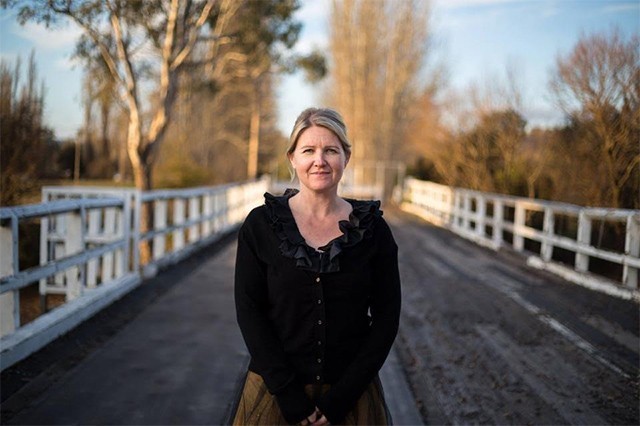As those who level their condescending views in the public sphere upon people who do not fall into the category of heterosexual once more, I cannot help but wonder what another’s sexuality and life choices really has to do with them? With every controversial issue, sides will be formed.
Usually those sides occur with ease depending upon how the said issue will affect that person. What continues to baffle me is how allowing those who are lesbian, gay, bisexual, transgender or inter sex people (LGBTI) marry legally will crumble the pillars of society?
How will allowing two people who love, respect and are committed to one another marry hurt the community?
I also question what the God, who features so heavily in some people’s justifications of treating others with inequality, would think of this?
Whilst obviously not as absorbed in the brand of Christianity that Mr Breed (Tumut and Adelong Times June 2) enjoys sharing with the readers of the Times each time the word gay is written, I too believe in God and in Christianity.
Perhaps my view is too basic to be considered religious by some, but the number one value I connect with religion is to accept others, to be kind and to not use religion as a justification of an opinion.
Judging those who are different, either through religion, gender, race or sexuality, is not acceptable community behaviour. The law even states this.
Whilst I cannot quote passages from the Bible nor argue the nitty gritty of how the interpretations from the Bible can enable people to stand on their soap box and deny basic human rights to others, I can without doubt justify my views on marriage equality.
I can only imagine how those in the community who are LGBTI feel when such judgemental statements are printed in a country newspaper.
As a heterosexual woman I have no personal interest in marriage equality. I do have an interest in equality though and ind the use of religion or the preservation of the institution of marriage arguments as to why LGBTI individuals cannot marry as weak.
There are plenty of marriages that contain little love, no patience and poor examples of what love is to the children who may live within the household.
There are just as many marriages built upon fear, violence and distain where leaving is not an option.
Where are the Mr Breeds of the world each time I write about women and children involved in domestic violence? Where were you when I wrote about paedophilia and those in high places abusing their position of trust? Where was your compassion and solutions each time I wrote about homelessness?
Surely these topics, which have a greater chance of actually impacting upon society, our neighbourhoods and our children and even you are worthy of your support?
The term “marriage equality” is not one I have invented. It is a term which is used world-wide to describe the right for loving couples to marry.
Yes, I am a supporter of marriage equality yet I am also a supporter of the news. And like it or not, marriage equality is currently big news.
As a divorced woman, with three happy and well adjusted children myself, I too believe in marriage and in an ideal world we would all live happily ever after in our marriages.
In the modern world, regardless of our wishes, this does not always occur. It doesn’t mean the adults involved nor their children should be judged nor disadvantaged. It does not mean these people have given “God the middle finger” nor sinned or are worse people than those who remain married. It is life.
To suggest that those who enter a marriage and are not of the traditional male and female union will block parenting equality for possible children from these unions also has me stumped.
The gender of parents, whether the parenting group includes grandparents or the parent’s new partners should mean nothing, what should is how that child is loved and supported.
After all the current statistics regarding domestic violence and child abuse are related to heterosexual couples, and they are pretty horrific.
I am unsure of how suggesting those couples that cannot “make babies” be only permitted to live together and not to marry is a sound argument for male/female only marriage.
What about the heterosexual couples who cannot have children? What about those in our communities who adopt children?
Whilst I imagine my words will attract criticism and a variety of opinions, as did my article in the TATIMES May 29, the issue remains a sensitive one and should be treated as such.
Those young members of our community who may be struggling with their sexuality should not have to deal with words that damn them to hell nor guilt them into silence.
Those days have passed.
Whilst we all hold and often voice our own opinions, I ask those who are against marriage equality, if the legislation to allow it passes, how will it affect you?
Perhaps more importantly what would you do if one of your children or a loved one were gay?

